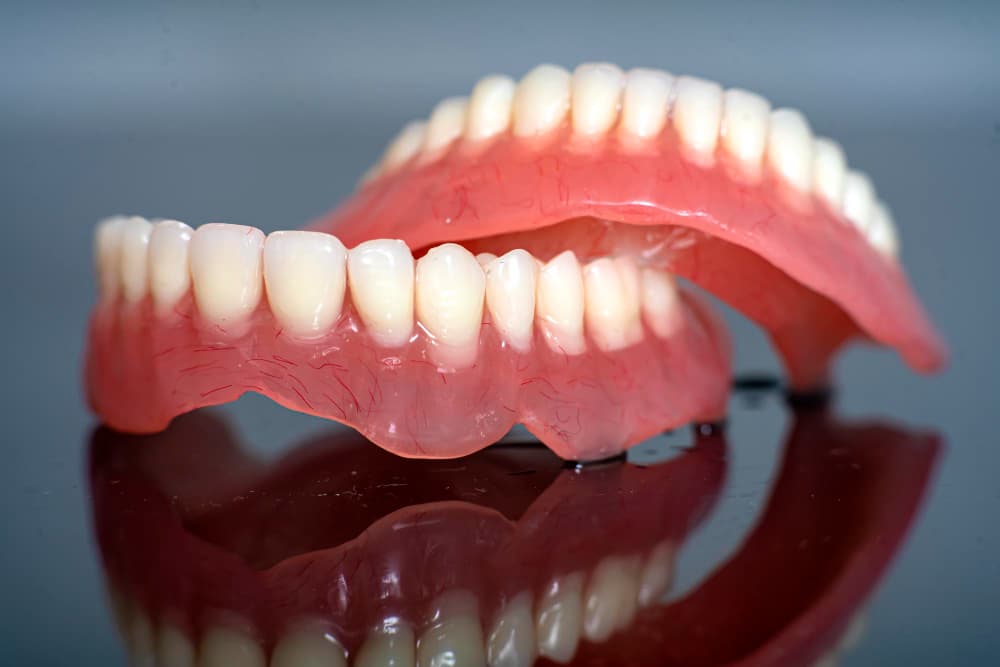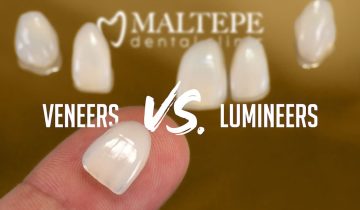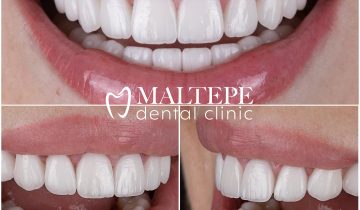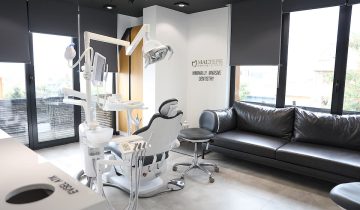Last updated on October 18th, 2023
American College of Prosthodontists (ACP) reports that 120 million Americans are missing one or more teeth while 36 million of them have no teeth at all. Moreover, these figures are expected to climb in the following 20 years. The report also informs that missing teeth might lead to serious problems including nutritional disorders, obesity, coronary issues, diabetes, and even some types of cancer. Although the report is alarming, it is still good to know that there are numerous dental treatments available, and people care more about their oral health nowadays.
Immediate dentures are a temporary solution to replace missing teeth and one of the most practical ways to avoid suffering from edentulism. They offer a number of benefits, including protecting the gums, preventing facial muscles from sagging, and maintaining appearance and self-confidence. However, there are also some potential drawbacks, such as imperfect fit, higher cost, and shorter lifespan. As you might already know, getting custom-made permanent dentures usually takes a long time to fabricate. In the meantime, you can consider temporary dentures. Temporary or immediate dentures are applied right after a tooth extraction. So, it saves you from being edentulous until you get your permanent denture.
In this post, you will learn a lot of things about immediate dentures including but not limited to how they are made, the benefits they offer, potential issues, and several other points that any patient might want to know.

What Are Immediate (Or Temporary) Dentures?
Immediate dentures are dental prostheses to restore the missing tooth after the extraction. They offer temporary protection and functionality to patients until they get permanent dentures or overdentures.
Why Are Immediate Dentures Needed?
Immediate dentures are needed when you have a full teeth extraction. Your dentist can also ask you to wear immediate dentures when you have several teeth extracted depending on the position in your mouth. If the edentulous part is not exposed naturally, you may prefer not to wear immediate dentures.
What Is The Timeline And Process Of Immediate (Temporary) Dentures?
The typical process of getting Immediate dentures is as follows:
- Pre-Extraction Impressions Creation And Customization
Your dentist takes several impressions of your teeth and bites to customize your temporary dentures until the day of extractions.
- Tooth extraction and wearing immediate dentures
On the day of extractions, your dentist removes your teeth and gives you temporary dentures to protect your gums until you get your permanent dentures.
- Post-extraction period
Soon after the extraction and wearing temporary dentures, you might feel soreness and discomfort. Patients usually feel much more comfortable by the end of their first month, and they get their temporary dentures.
What Are the Benefits Of Immediate Dentures?
The advantages of immediate dentures are as follows:
- They fill the missing parts of the gum tissue just after an extraction.
- They protect the gum tissue against damage and bacteria during the healing process.
- They can be re-aligned or adjusted if you have constant discomfort with them.
What Are the Potential Challenges And Limitations Of Immediate Dentures?
Some potential disadvantages of immediate dentures are:
- They usually cost more than traditional dentures
- You may not see how they will look before wearing them.
- They might not fit perfectly and thus need re-alignment.
In this video Dentist Richard C. Piotrowski explains what an immediate denture is, how it’s different than a regular denture, and the pros and cons of both regular dentures and immediate dentures.
How Long Does It Take To Complete Immediate Dentures?
If you don’t need a preliminary operation, you will need 4 or 5 visits to get an immediate denture. At these visits, your dentist will get the impressions of your teeth, record the biting and correct alignment, check your back teeth, and even extract them before the fabrication process. Once you are ready for the (remaining) extractions, the dentist will extract them and insert the immediate denture.
How To Care Immediate Dentures?
Follow these tips to care for your immediate dentures:
- Don’t remove your dentures until the next morning following the extraction.
- In the following morning, carefully remove your dentures with your clean hands.
- Rinse the denture under cold water without using toothpaste or soap.
- Rinse your mouth, especially the denture area- using a little salt and warm water.
- Put your denture back in your mouth, and clean the remaining teeth as you normally do.
- Repeat this routine for the following two mornings (sleep with your dentures on and do the cleaning in the morning)
- On your fourth day, take out your dentures and clean them and your mouth as described above before you go to bed.
- Put the dentures in a small cup filled with cold water, and let it stay there until morning.
- In the morning, take your denture out of the cold water, rinse it, and wear it.
- Keep this routine for at least the following 7-10 days.
- Don’t skip your medications described by the dentist.
- Take up a soft/liquid diet during the first few days after the extraction.
- Wait for your next appointment scheduled on the extraction day.
- If you have any problem (constant soreness, pain, sore spots … etc.), see your dentist immediately.
What Is The Cost Of Immediate Dentures?
The cost of an immediate denture is around $2000. Remember that you might have extra visits to your dentist before or after getting temporary dentures.
Why Does An Immediate Denture Cost More?
Immediate dentures cost more than traditional dentures because they are custom-made for the patients, and it takes a longer time and preparation to fabricate them.
What are the Differences Between Immediate and Conventional Dentures?
The table below illustrates the key differences between immediate dentures and conventional dentures.
| Immediate Dentures | Conventional Dentures |
| Temporary Given right after the extraction Save your gums from sagging | Permanent Given after several weeks Cannot stop sagging |
What Is The Difference Between Immediate Dentures And Permanent Dentures?
Immediate dentures are given to the patients on the day of tooth extraction to make the healing process safer and more comfortable. On the other hand, permanent dentures are given only when the gum tissue heals after the extraction.
What are full dentures and how do they differ from immediate dentures?
Full dentures are a type of denture that replaces all of the teeth in the upper and/or lower jaw. They are typically placed in the mouth after the gums have healed from tooth extraction, which can take several weeks or months. Immediate dentures, on the other hand, are placed in the mouth immediately after tooth extraction. Learn more about the full dentures in our blog post: ‘Full Dentures: A Comprehensive Guide‘
What are partial dentures and how are they different from immediate dentures?
Partial dentures are a type of denture that replaces only a few missing teeth. They are typically anchored to the adjacent natural teeth. Immediate dentures, on the other hand, are placed in the mouth immediately after tooth extraction and can replace all or some of the missing teeth. Learn more about the partial dentures in our blog post: ‘Partial Dentures: Everything You Need to Know‘
What are implant-supported dentures and how do they differ from immediate dentures?
Implant-supported dentures are a type of denture that is anchored to dental implants. Dental implants are surgically placed in the jawbone to act as artificial tooth roots. Immediate dentures, on the other hand, are placed in the mouth immediately after tooth extraction. Implant-supported dentures are a more permanent solution for replacing missing teeth than immediate dentures. Learn more about the implant-supported dentures in our blog post: ‘Implant-Supported Dentures‘
What Are Alternative Dental Solutions To Immediate Dentures?
The most popular alternatives are permanent dentures, dental bridges, and dental implants.
What Helps Pain After Immediate Dentures?
You can take ibuprofen, or apply ice packs.
How Long Does The Pain Last With Immediate Dentures?
If you have swelling and pain, they should disappear within several days, but you will feel much better within 2 weeks.
How Long Does It Take To Recover From Full Mouth Extraction With Dentures?
Full mouth extraction with immediate dentures can take 6 to 8 weeks to heal the gums. However, the complete healing of the bone structure might take 6 to 8 months.
Can You Sleep With Immediate Dentures?
Keep your immediate denture in your mouth during the first night following the extraction. Then, you should take your denture out of your mouth and keep it in cold water when you are sleeping.








